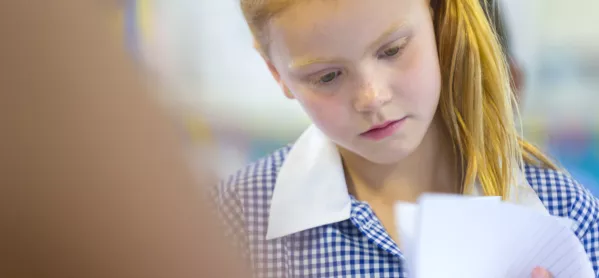Girls are more likely than boys to say they are not clever, new research has found.
The study, which was conducted by GL Assessment, found that one in five (21 per cent) of children aged seven to 16 thought they are not clever.
But girls are particularly likely to lack confidence - with 23 per cent saying they are not clever compared to 19 per cent of boys.
And, at the opposite end of the scale, while 34 per cent of boys agreed strongly that they are clever, just 27 per cent of girls felt the same, the study based on data from more than 40,000 pupils found.
Politics: Gibb calls on teachers to change girls’ views of Stem
Opinion: It’s ‘no wonder’ boys are doing less well than girls
Viewpoint: Now we must tackle girls’ ‘confidence gap’
The negative attitudes exist in spite of the fact that girls are more likely to reach the expected standard in reading, writing and maths Sats at age 11. More girls are also getting top grades (7 and above) at GCSE than boys.
The GL Assessment research report, Doubting Miss Daisy, warns that pupils having low self-regard and a lack of confidence in their own ability could become self-reinforcing.
There was no variation by age, with pupils in Year 6 as likely to doubt their abilities as those in Year 11.
“We don’t know why so many children have such a poor opinion of their abilities by the time they start secondary school,” Greg Watson, chief executive of GL Assessment, said.
“But we do know that low self-worth has a knock-on effect not just on academic performance but also on wellbeing.
“There are many reasons why children have low self-esteem and it shouldn’t be assumed that just because a child is doing well academically, their lack of self-esteem isn’t having a detrimental effect on them in other ways. The key is to identify children who have low self-regard early and put in place interventions to address them.”
Of children who doubted they were clever - 50 per cent did score in the bottom third for reading ability on the GL Assessment’s New Group Reading Test, but the survey found that almost a fifth of less confident children scored highly on reading.
The assessment group’s report says measures that teachers can take to tackle children’s doubt in their own learning ability include: recognising effort, helping pupils measure their own progress, encouraging curiosity and developing pupils’ organisational skills.




